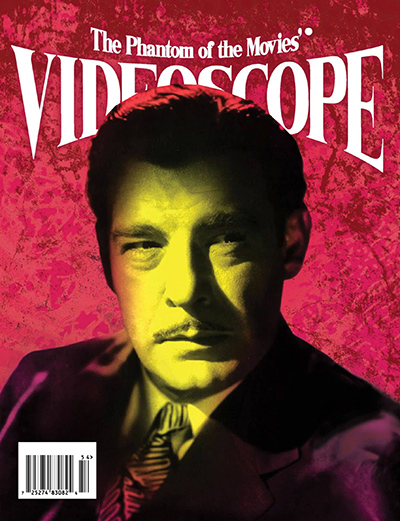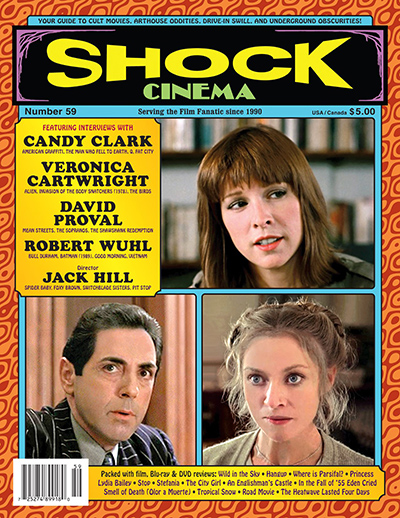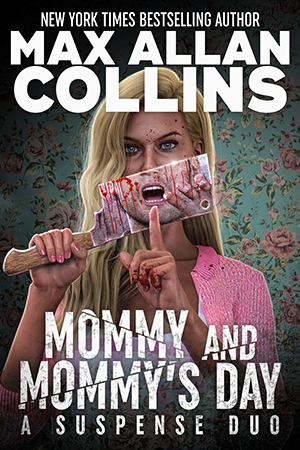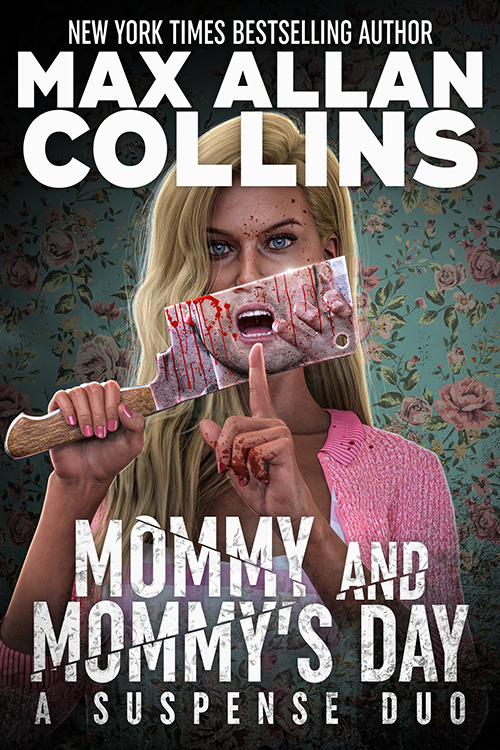One of the small pleasures denied me during this pandemic, where Barb and I have been largely sheltering in place for almost a year now, is going to Barnes & Noble and Books-a-Million to check out the new magazines.
But magazines have been a stubbornly dying breed for some time, and my favorites – most dealing with B-movies – have been hit hard. A particularly tough loss to take comes as a double hit – the writer/editor/publisher behind VideoScope, Joe Kane, has died.
And with him has gone his wonderful magazine.

VideoScope was among the last of a handful of magazines combining reviews of what a prior dead magazine called psychotronic movies with news, articles and interviews. I never met Joe, but we exchanged many e-mails and I was an occasional contributor to the magazine. He was a consistent booster of my films and, when he was writing for the New York Daily News, reviewed both Mommy movies generously.
I looked forward to receiving VideoScope in the mail the way I used to (in my high school years) look forward to snagging my father’s gift subscription copy to Playboy before he got home from work. Of course Playboy – like my father – is gone now, but perhaps that magazine’s demise has to do not just with changing times, but the reality that certain magazines – yes, like the otherwise dissimilar VideoScope – were so much extensions of their creators/editors that they could not survive their absence. The fate awaiting Hustler, now that Larry Flynt is gone, is likely the same.
I dealt with a Flynt-like editor of the Hustler-like Climax magazine in Quarry’s Climax, the sexual content of which offended some readers – usually the same readers who weren’t offended by the violence. And I revisit aspects of that story in the forthcoming Quarry’s Blood. I liked Flynt’s Hustler, which had an outrageous sense of humor and a unique combination of blue-collar sensibility and left-wing politics (only “Asshole of the Month” could do a Tucker Carlson justice). The interviews and articles were often of interest as well (I will stop short of defending myself by saying, “I read Hustler for the articles,” even if it is sort of true – but I doubt I’ll be picking it up again).
Among the more respectable magazines I have looked forward to are two devoted to Old West history/pop culture, True West and Wild West. Both remain excellent and the former is the work of Stuart Rosebrook, a friend of mine who I’ve watched in recent years rise to the position of editor (the magazine’s publisher and creative guiding hand is the great artist/writer, Bob Boze Bell). Stuart Rosebrook’s screenwriter father Jeb wrote the classic “modern” western, Junior Bonner and much else (including The Waltons and The Yellow Rose on TV, The Black Hole feature film and The Gambler TV movies); when Stuart was living in Iowa City, he arranged for me to meet his visiting dad, which was an honor and a thrill.

With VideoScope gone, only a few stalwart defenders of the psychotronic side of cinema remain. A standout is Steven Puchalski’s Shock Cinema, which combines in-depth interviews with actors and filmmakers with reviews of obscure movies, Blu-rays/DVDs, and books. It has the same kind of fannish yet professional touch as Joe Kane’s VideoScope but with its own distinctive spin. The current issue is typical, featuring incredible interviews with actors Candy Clark (American Graffitti), Veronica Cartwright (Alien), Robert Wuhl (Arli$$), and director Jack Hill (Switchblade Sisters). A similar survivor is Darryl Mazeski’s Screem, another newsstand survivor. Like Shock Cinema and the now-lamented VideoScope, Screem has a personal touch and its own look and feel.
A slicker classic cinema magazine that somehow endures is the UK’s Cinema Retro, with incredible in-depth articles, wonderful reviews, and contributions by my pal Raymond Benson. Every issue is a feast, and occasionally they do a special issue devoted to a single classic film, with the emphasis on the ‘60s and ‘70s.
But these baby-boomer delights are a dying breed, as are magazines themselves, I fear.
Among the first things I did when it became clear we’d be sheltering in place until a vaccine arrived (and we still are waiting, Barb and I, for our shots) was to subscribe to all of the above and a few other magazines. But the joy of going to the magazine section of a book store, to see if a new issue of a favorite periodical is on the stands, is among the small yet keenly felt losses of this pandemic.
Joe Kane, who called himself the Phantom of the Movies, is a loss particularly keenly felt. So are the many magazines we have all loved…and taken for granted.
Here’s my introduction to the just-published IAMTW tie-in anthology, Turning the Tied. (Kindle link)
I also discussed tie-in writing in the forthcoming MWA, Lee Child-edited mystery writing handbook.
M.A.C.

